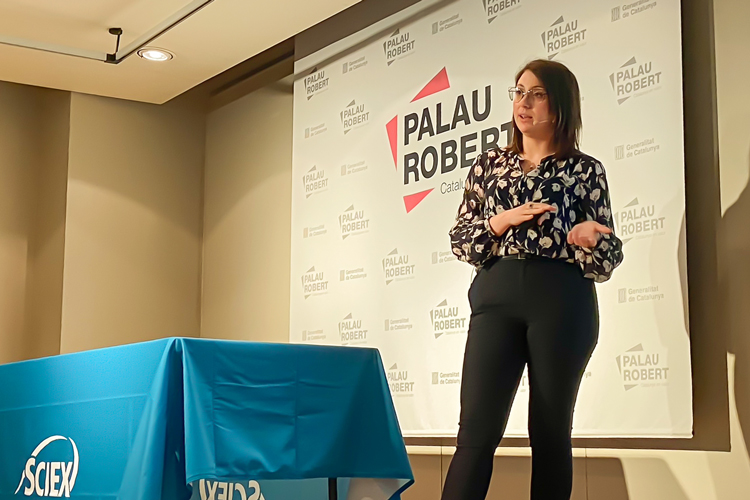As part of the collaboration agreement between IQS and the scientific instrumentation manufacturer SCIEX, two seminars were recently held to present the company’s new high-resolution mass spectrometry (HRMS) instruments and their applications.

As part of the collaboration agreement between IQS and the scientific instrumentation manufacturer SCIEX, two seminars were recently held related to the company's new high-resolution mass spectrometry (HRMS) instruments and their applications. The two seminars were very well received by the large audience in attendance.
The first session, organised by SCIEX and the IQS Tech Transfer division, was held at the university, under the title “Zeno revolution in omics.”
First, the company presented the new ZENOTOF 7600, led by Dr Josep Lluis Lliberia, a senior application specialist at SCIEX, and Mr Antonio Serna, a proteomics support specialist at SCIEX. In the near future, the new ZENOTOF 7600 is expected to be included in the IQS-SCIEX Demo Lab as part of the collaboration agreement between the university and the company, together with the instruments' predecessors: the X500B QTOF and the 7500 QTrap.
The ZENOTOF 7600 is a high-resolution MSMS spectrometer that incorporates two essential novelties: on the one hand, the (ZENO) trap that makes it possible increase the efficiency of ion transmission and grouping, providing a 5-20 fold improvement compared to the sensitivity achieved in traditional QTOFs, with the consequent decrease in quantification limits and enhanced mass spectra quality. The other great novelty of the ZENOTOF is the inclusion of the EAD – Electron Activated Dissociation – fragmentation technology, a specific fragmentation system that makes it easier to elucidate compounds. Finally, SCIEX specialists highlighted the SCIEX OS software on the new equipment, a unique and improved platform that offers all management and operation options.
Examples of ZENO TECHNOLOGY use
Due to its characteristics, the ZENOTOF is a real technological revolution in the areas of omics. For this reason, the seminar featured several international speakers who contributed their experience in using these types 
of instruments: Dr Cristina Andrés Cuevas from the University of Barcelona, a specialist in the development of analysis methodologies applied to the Exposome, Metabolome, Nutrition, and effects on human health; Dr Stotan Stoychev from the Danish company Evosep, an expert in Proteomics who showed the integration of a ZENO device in the mapping of peptides in patients' biological samples. Dr Nicola Zamboni, professor at EHT Zürich, presented an example of lipid analysis using ZENOTOF's EAD technology, calling it “extremely information-rich.” Finally, Dr Héctor Gallart-Ayala, with the University of Lausanne, presented an analytical methodology for metabolomic studies of complex lipids.
Seminar on applications in small molecule analysis
Under this title, the second session organised by SCIEX was held at Palau Robert in Barcelona, as part of the TV3 Crims TV series exhibition.
The presenters showed some examples of the applications of SCIEX LC-MS instruments for small molecule analysis in different areas, such as:
• analysis of PFA in water treatment (Barcelona Water Authority)
• analysis of pollutants in public health matters (Public Health Agency of Barcelona)
• childhood metabolomics studies for the diagnosis and monitoring of hereditary or rare diseases (Hospital Clínic de Barcelona)
Dr Margalida Artigues, the director of the IQS-SCIEX Demo Lab, presented the results of the pioneering research carried out by the Materials Engineering Group (GEMAT) at IQS. This research aims to characterize, purify, and quantify therapeutic oligonucleotides, which are active principle ingredients used to develop new therapeutic strategies in preventive medicine.
As was the case with the first session held at IQS, the session that took place at the Palau Robert was also well attended, with the audience enriching the speakers' presentations with interesting questions and debates.










